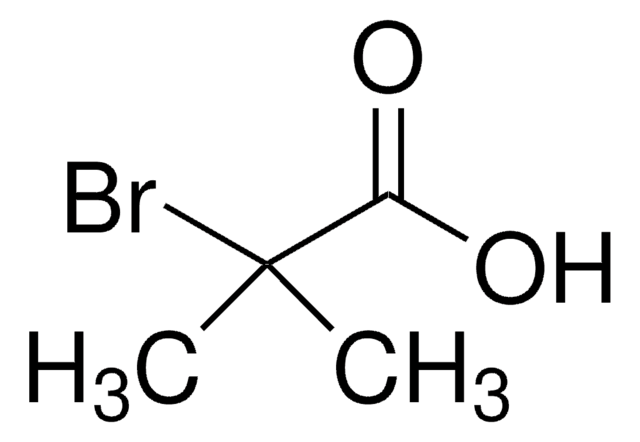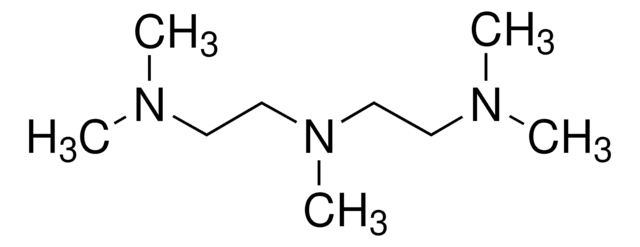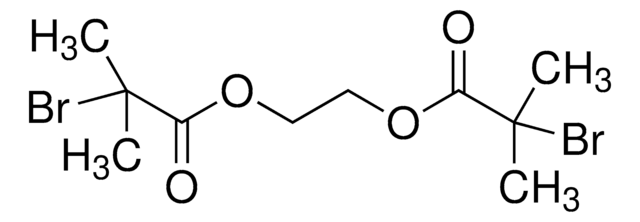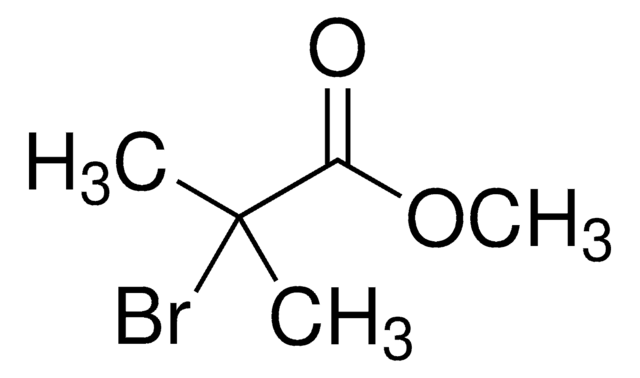792055
2-Azidoethyl 2-bromoisobutyrate
≥95%
Synonym(s):
2′-Azidoethyl 2-bromoisobutyrate, 2-Azidoethyl 2-bromo-2-methylpropanoate, 2-Azidoethyl-2-bromoisobutyrate, 2-Bromo-2-methyl-propanoic acid 2-azidoethyl ester, Azido-ATRP initiator, Azido-Bib
About This Item
Recommended Products
Quality Level
Assay
≥95%
form
liquid
refractive index
n20/D 1.482
density
1.437 g/mL at 25 °C
SMILES string
CC(Br)(C)C(OCCN=[N+]=[N-])=O
InChI
1S/C6H10BrN3O2/c1-6(2,7)5(11)12-4-3-9-10-8/h3-4H2,1-2H3
InChI key
OYSXPOJKJKBNSG-UHFFFAOYSA-N
Application
Signal Word
Warning
Hazard Statements
Precautionary Statements
Hazard Classifications
Eye Irrit. 2 - Skin Irrit. 2 - STOT SE 3
Target Organs
Respiratory system
Storage Class Code
10 - Combustible liquids
WGK
WGK 3
Flash Point(F)
Not applicable
Flash Point(C)
Not applicable
Choose from one of the most recent versions:
Certificates of Analysis (COA)
Don't see the Right Version?
If you require a particular version, you can look up a specific certificate by the Lot or Batch number.
Already Own This Product?
Find documentation for the products that you have recently purchased in the Document Library.
Customers Also Viewed
Articles
Over the past two decades, the rapid advance of controlled living polymerization (CLP) techniques.
Our team of scientists has experience in all areas of research including Life Science, Material Science, Chemical Synthesis, Chromatography, Analytical and many others.
Contact Technical Service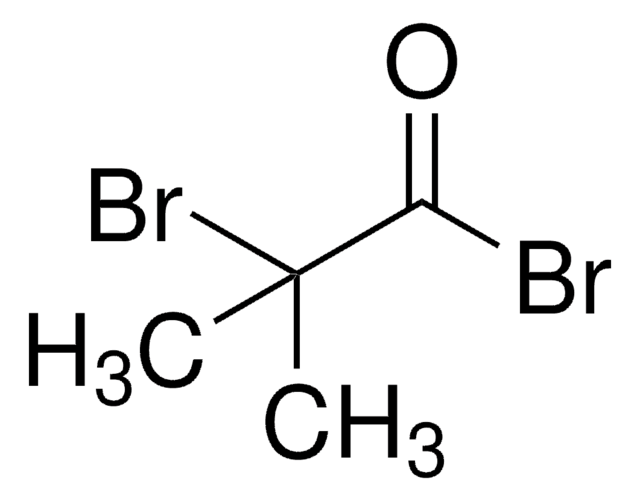
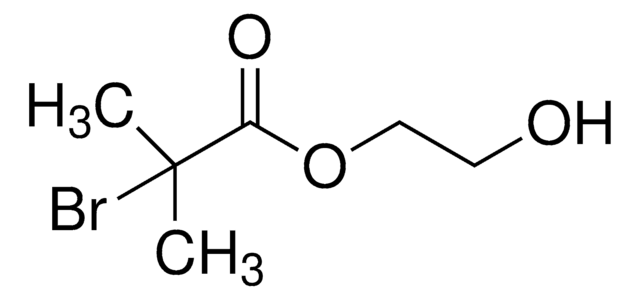

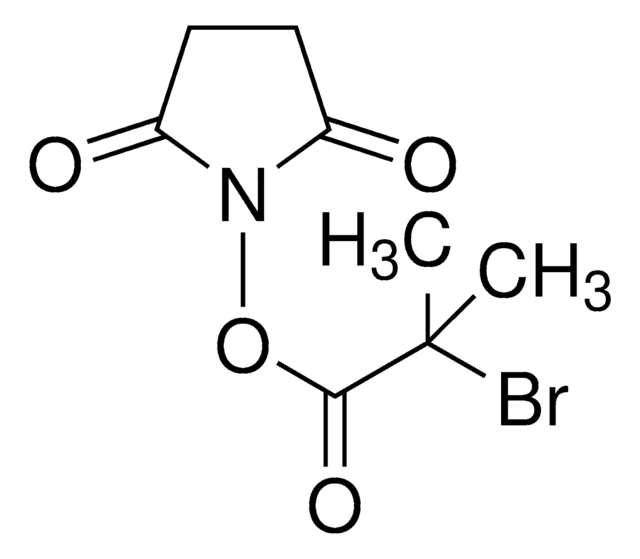
![Tris[2-(dimethylamino)ethyl]amine 97%](/deepweb/assets/sigmaaldrich/product/structures/695/792/ee0ff167-22a3-43a7-83a1-6c4908adf0ae/640/ee0ff167-22a3-43a7-83a1-6c4908adf0ae.png)

